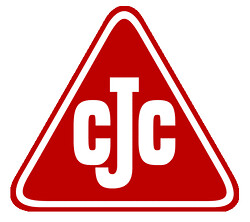When your fuel colours dark, a proven solution is available
Modern fuels requires continuous attention to prevent degradation and ineffective operation of engines. - One type of fuel contamination that causes more concerns is asphaltenes.
Asphaltenes can change the color of fuel into a dark brown color. But the blockage of injectors or development of a dark sludge type layer of contamination in fuel tanks is often seen as well.
Sometimes asphaltenes are mistaken to be biological degradation of fuel. Biological degradation can promote the growth of bacteria causing the creating of a sludge type contamination in fuel systems.
Asphaltenes are highly polarized chain components that are present in crude and heavier refined oils. They can contaminate distillates when the fuel is not adequate filtered and introduced in your fuel system easily while bunkering.
But also the re-circulation of distillate fuels in engines can create asphaltenes. In modern engines the fuel is exposed to higher pressures and temperatures. This can result in the creating of asphaltenes due to the overheating of fuel.
In fuel analysis, asphaltenes often have a typical particle size around 2 micron and can result into malfunction or damage to fuel pumps and injectors. The partial blockage of injectors results in general into increased fuel consumption and higher CO₂, CO and NOx emissions.
Asphaltenes can also clog the fuel filters on the engine. But in this situation, the asphaltene contamination is already distributed in the fuel system.
To prevent damage due to asphaltenes, C.C.JENSEN offers the CJC® Fuel Filter Separator type PTU to a wide variety of markets. By introducing an effective circulation of fuel in tanks, the provision of clean and dry fuel to engines can be realized. For marine applications our aim is to ensure clean and dry fuel in service tanks.
But it takes more to prevent degradation of fuel that jeopardised the optimal operation of engines. The CJC® PTU series removes a wide variety of solid contamination and water. Ingressed water, for example introduced in fuel due to condensation, accelaretes the degradation of fuel, reduces life time of pumps and injectors and supports the growth of bacteria.
The usage of biocides to treat the fuel is often common practice, however they will not remove water and solid contamination. This implicates that the risk of damaging injectors and fuel pumps is still present.
With C.C.JENSENs proven CJC® Fuel Filter Separator series PTU you get:
· Removal of various types of contamination from the fuel including asphaltenes.
· Extended lifetime of fuel pumps and injectors.
· Lower cost of ownership because of the high dirt holding capacity of the CJC® Filter Inserts
· Clean & dry fuel in tanks by forced circulation.
· No fuel degradation
A solution easy to add to your fuel system
